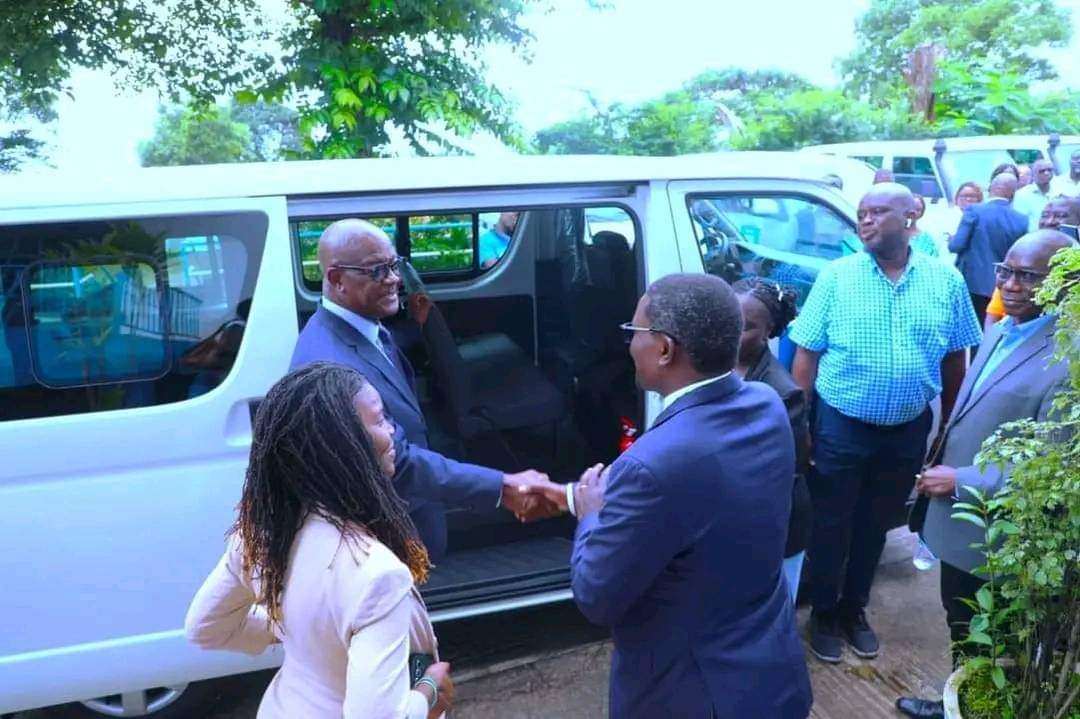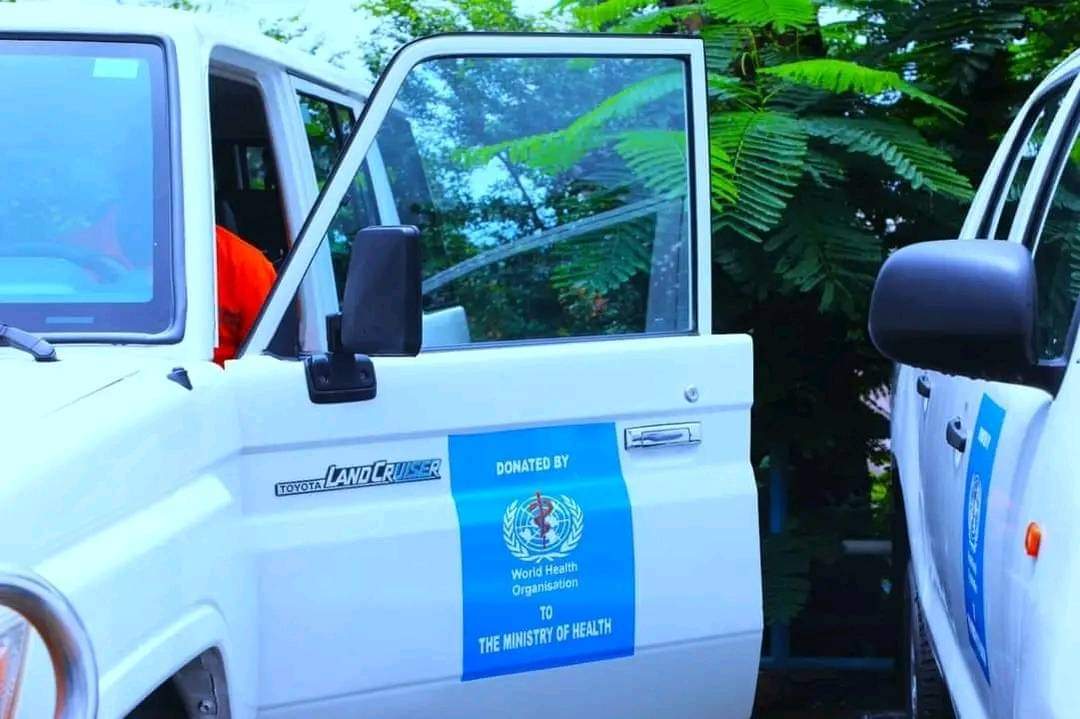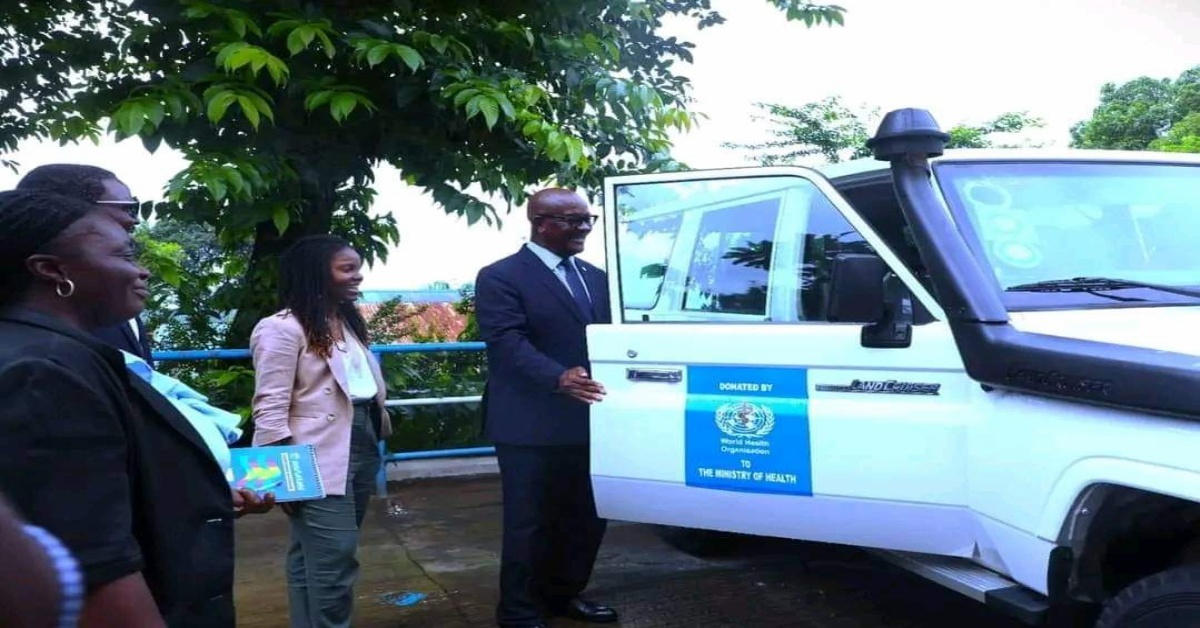The World Health Organization (WHO) has bolstered Sierra Leone’s healthcare system with the donation of seven vehicles to the Ministry of Health and Sanitation. This move is aimed at enhancing healthcare service delivery across the country.
In a ceremony held in Freetown, Dr. Innocent Bright Nuwagira, WHO’s Country Representative, officially handed over the vehicles to Dr. Austin Demby, the Minister of Health and Sanitation. “We are pleased to transfer ownership of these seven vehicles, referred to as ‘6+1’—six of which are field vehicles, and one is a minibus,” said Dr. Nuwagira. He further explained that the minibus had been refurbished after being out of use for several months, and all vehicles are now fully ready to support the ministry’s activities.
The donation underscores WHO’s ongoing commitment to Sierra Leone’s healthcare infrastructure, particularly in its efforts to reduce maternal and infant mortality rates. Dr. Demby expressed gratitude for the donation, highlighting the vehicles’ significance in improving patient-centered care across the nation. “These vehicles are essential tools that will enable us to perform our duties more effectively, ensuring that no one is left behind in our quest to provide high-quality healthcare,” he said.
Dr. Demby also noted that while the demand for such resources exceeds current availability, the vehicles will be retained at the ministry’s headquarters for oversight and supervisory purposes. “We need to be out there, observing the situation not only in Freetown but across all districts, hospitals, and clinics,” he stated, emphasizing the vehicles’ role in monitoring and enhancing service delivery throughout Sierra Leone.
The handover marks a significant step in WHO’s ongoing partnership with Sierra Leone, aligning with the ministry’s broader mission to achieve universal health coverage and deliver person-centered care. “We are delighted to support the ministry in building a stronger health system that serves all citizens,” Dr. Nuwagira remarked, reinforcing WHO’s commitment to improving health outcomes in the country.
As Sierra Leone continues to make strides in reducing infant and maternal mortality rates, the addition of these vehicles is expected to further boost the ministry’s capacity to deliver on its healthcare promises, transforming the nation’s health sector for the better.











